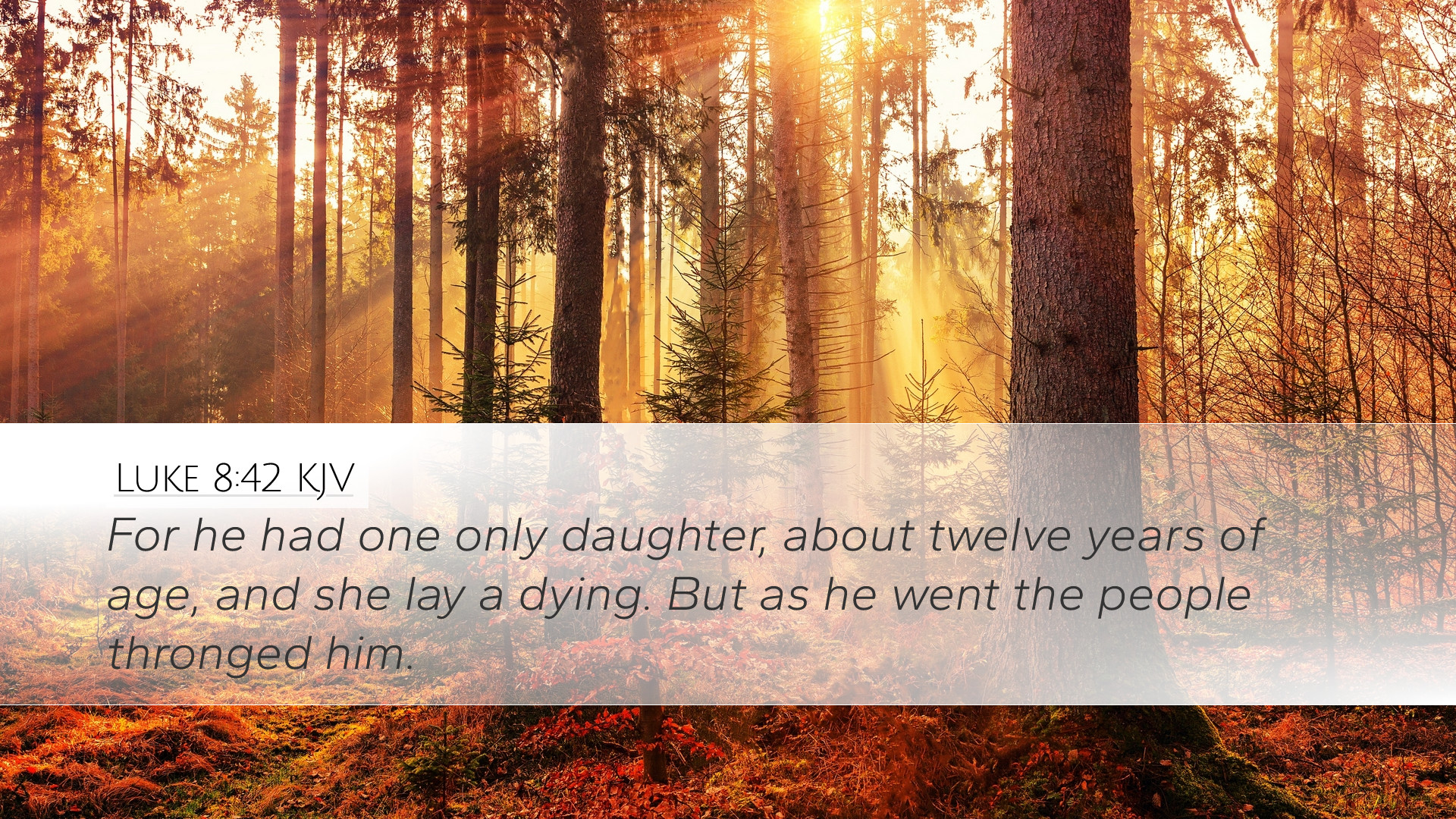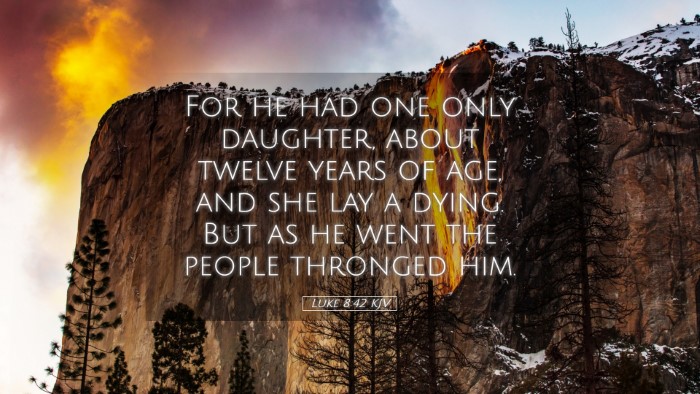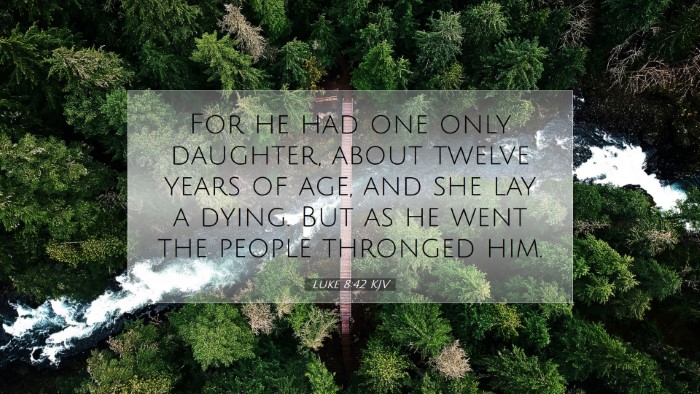Commentary on Luke 8:42
Luke 8:42 states: "For he had only one daughter, about twelve years old, and she was dying." This verse narrates a crucial moment in the life of Jesus and illustrates themes of faith, desperation, and divine intervention.
Contextual Background
This passage falls within a broader narrative where Jesus is engaged in various miracle works and teachings. The desperation of Jairus, a ruler of the synagogue, introduces us to themes of faith and the urgency of a father’s love.
Insights from Commentaries
Matthew Henry's Commentary
Matthew Henry emphasizes the desperation of Jairus as he approaches Jesus, highlighting the contrast between the authority of a synagogue ruler and the helplessness he feels as a father. His daughter's illness signifies an immediate need for intervention, and the age of twelve suggests she was on the brink of adolescence, a critical phase of development. Henry points out that Jairus’ trust in Jesus is admirable; he bows before Him, acknowledging that His power can heal. This posture illustrates a vital lesson on humility and faith.
Albert Barnes' Notes on the Bible
Barnes notes the significance of Jairus' title as a ruler of the synagogue, which would typically carry a heavy public weight. By humbling himself and approaching Jesus, he risks his reputation, indicating his deep desperation and faith in Jesus. Furthermore, Barnes argues that the twelve years of the girl’s age symbolize completion, marking her tender vulnerability and the trauma of her imminent death upon which Jairus seeks to intervene. This age captures the heart of mourning and hope for families.
Adam Clarke's Commentary
Clarke provides additional insights into the socio-cultural implications of the text. He relates Jairus’ plight to that of many in society who, despite their rank or status, face personal crises that challenge their social positions. Clarke elucidates how this experience encapsulates the universal nature of human suffering and the accessibility of Jesus. Furthermore, Clarke highlights that the crowd surrounding Jesus represents the societal pressure that often accompanies faith-driven needs. Jairus’ public plea mirrors the struggles faced by those who are marginalized yet desperately seek the healing power of Christ.
Theological Implications
- Faith in Desperation: Jairus’ story demonstrates that genuine faith often emerges from the depths of despair. His need drives him to Jesus, emphasizing the idea that crisis can lead us to Christ.
- Christ's Compassion: This narrative reflects Jesus’ compassion and readiness to respond to the cries of the needy, reinforcing His role as the healer and restorer.
- The Nature of Divine Timing: The interruption of Jesus’ journey to heal Jairus’s daughter reveals the complexities of divine timing. Even in our urgency, God operates on a different schedule.
- Intercessory Roles: The text illustrates the importance and power of intercession. As Jairus intercedes for his daughter, we are reminded of the profound impact of prayer and outreach to Christ.
Applications for Pastors and Theologians
This narrative provides a rich source for sermons and teachings around faith and action. Here are some key points:
- Encouragement to Seek Jesus: Pastors can encourage their congregations to bring their crises to Jesus, just as Jairus did.
- The Power of Community: Address the importance of gathering support during crises. Jairus did not approach Jesus in isolation but likely within his community context.
- Understanding Suffering: The biblical narrative offers an avenue to discuss the nature of human suffering, particularly in how it relates to God’s plans and purposes.
In conclusion, Luke 8:42 serves as a poignant reminder of the intersection of faith and desperation, the inherent value of prayer, and the compassionate nature of Christ. Through the lens of various commentaries, we gain a deeper understanding of Jairus' story, encouraging believers today to maintain their faith even in life’s most tragic moments.


